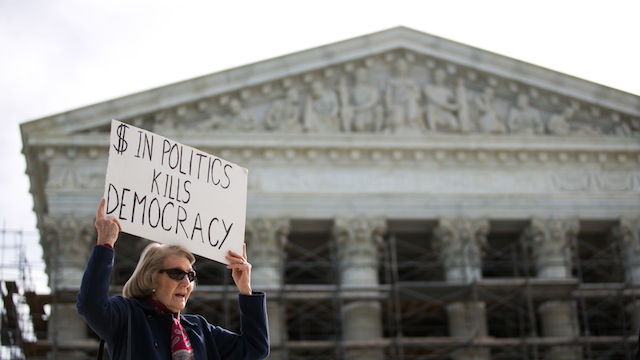
(Getty)
After the 2010 Supreme Court decision on Citizens United v. Federal Election Commission declared that corporations had the rights of people, including the right to give campaign contributions, activists and politicians alike have decried the increasing influence of private corporations in politics.
Today’s Supreme Court decision in the case of McCutcheon v. the FEC decided to strike down long-standing limits on how much money donors can give to politicians and political parties.
Here is what you need to know about this controversial decision:
1. There Are No More Limits to the Amount of Money Corporations Can Contribute
A 5-to-4 ruling today decided to overturns a number of laws from the 1970s, including the Supreme Court ruling in Buckley v. Valeo, which regulated campaign finance in order to prevent “corruption or the appearance of corruption.”
Under this new ruling, people (and corporations who are now legally recognized as people) will be able to contribute unrestricted amounts of money to political candidates and political parties. This throws away the old restrictions, which, according to the FEC, while allowing an individual person to contribute a maximum $2,600 to a candidate, $32,400 to a national party, will now eradicate the limit of $123,200 that one person can donate per cycle. These limits were put in place to prevent one person from accumulating too much influence over candidates vying for their contributions.
2. The Majority Ruled That Restricting Donations Infringes First Amendment Rights
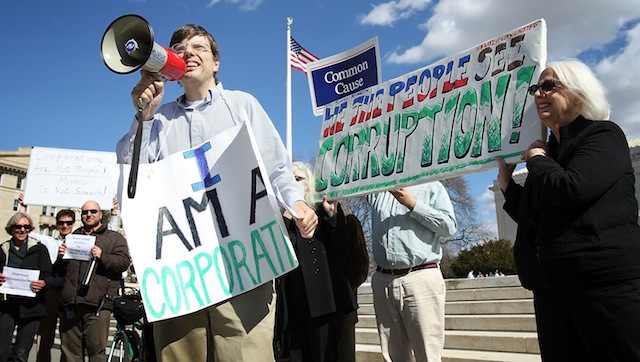
(Getty)
The 2010 Citizens United ruling determined that corporations were considered citizens, and as such have the same freedoms as the average person. This means that corporate entities could contribute directly to candidates and political parties as a practice of free speech. Under this logic, Chief Justice Roberts wrote in his majority opinion, which you can read above, that to limit how much money a “person” could contribute to a campaign, is akin to limiting free speech.
In his opinion Roberts writes, “Money in politics may at times seem repugnant to some, but so too does much of what the First Amendment vigorously protects. If the First Amendment protects flag burning, funeral protests, and Nazi parades — despite the profound offense such spectacles cause — it surely protects political campaign speech despite popular opposition.”
3. Justice Breyer Thinks the Decision Threatens ‘Democratic Legitimacy’
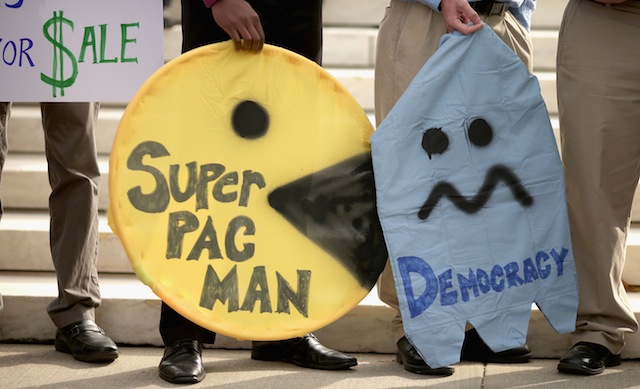
(Getty)
Representing the dissenting justices, Ginsburg, Sotomayor and Kagan, Justice Breyer’s opinion articulates the threat of eliminating campaign finance restrictions.
He writes in the introduction to his opinion:
Today a majority of the Court overrules this holding. It is wrong to do so. Its conclusion rests upon its own, not a record-based, view of the facts. Its legal analysis is faulty: It misconstrues the nature of the competing constitutional interests at stake. It understates the importance of protecting the political integrity of our governmental institutions. It creates a loophole that will allow a single individual to contribute millions of dollars to a political party or to a candidate’s campaign. Taken together with Citizens United v. Federal Election Commission, today’s decision eviscerates our Nation’s campaign finance laws, leaving a remnant incapable of dealing with the grave problems of democratic legitimacy that those laws were intended to resolve.
4. McCutcheon Is a Rich, Conservative Alabama Businessman
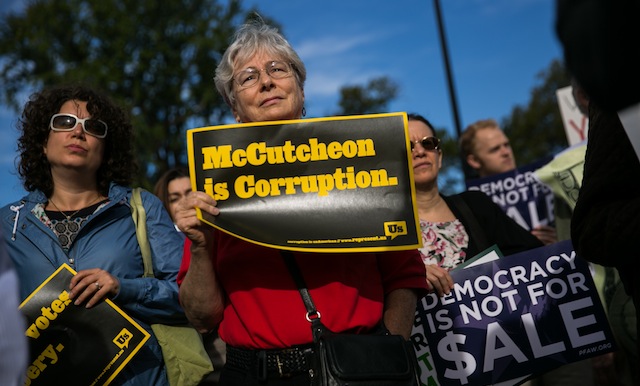
(Getty)
Shaun McCutcheon, an electrical engineer turned businessman from Alabama, is behind the suit against the Federal Election Commission. McCutcheon donated to 16 political candidates in the 2011-2012 election cycle when the aggregate limits restricted him from donating to 12 additional candidates. McCutcheon believed that these restrictions violated his First Amendment rights.
5. People Are Outraged
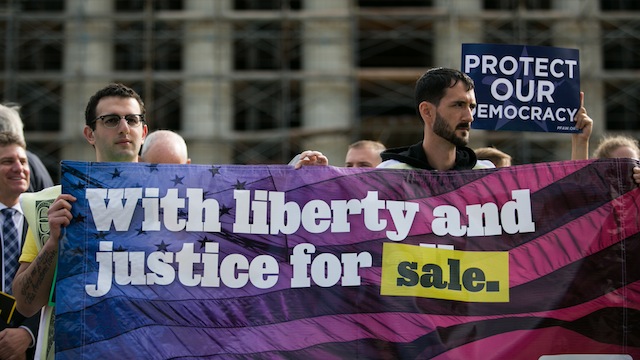
(Getty)
Moments after the decision was announced politicians and vocal opponents of the McCutcheon decision took to Twitter and the streets, to express outrage and to reinforce the popular opinion that the Supreme Court is disconnected from the general populus of the United States.
W/ #McCutcheon, SCOTUS has chosen to pour even more money into our process & politics. We must restore fairness & pass the #ByThePeople Act.
— Nancy Pelosi (@NancyPelosi) April 2, 2014